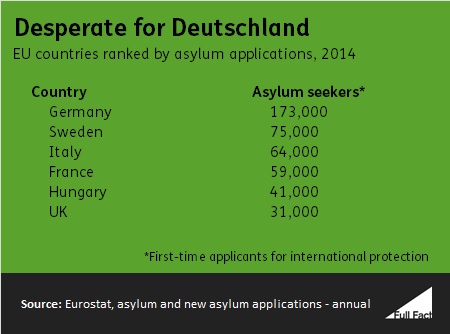"The perspective has been largely lost, and very much so, in the United Kingdom … in 2014, Germany received 175,000 asylum applications; Sweden, 75,000; Italy, 63,000; France, 59,000; and the United Kingdom, 24,000."
Peter Sutherland, UN Special Representative for International Migration, 30 July 2015
The broad picture is right, but Mr Sutherland understated the number of asylum seekers that the UK gets, in comparison to other EU countries, when he spoke to the BBC's World at One about the Calais situation.
The figures given correspond to the number of people applying for international protection for the first time in 2014, including family members. But the UK has around 31,000 applicants, not 24,000, in those statistics.
You only get close to 24,000 by looking at the number of main applications for asylum in the UK, excluding family members. There were 25,000 such applications made here last year, and 24,000 in 2013.
So Mr Sutherland seems to be comparing the total number of asylum seekers in these countries with a subtotal in the UK.
We've asked his office for a comment on whether this is right, or if he's using a different source (we're working from Eurostat figures).
On a like-for-like comparison, the EU countries receiving the most first-time asylum applicants in 2014 were as follows:

The UK is the sixth highest in the EU in terms of both people applying and people accepted for international protection.
In terms of asylum applicants as a share of population, the UK is 18th out of 30 European countries, according to the EU Asylum Support Office. There were 494 applicants per million inhabitants here in 2014; at either end of the scale, Sweden had 8,417, and Portugal just 42.
